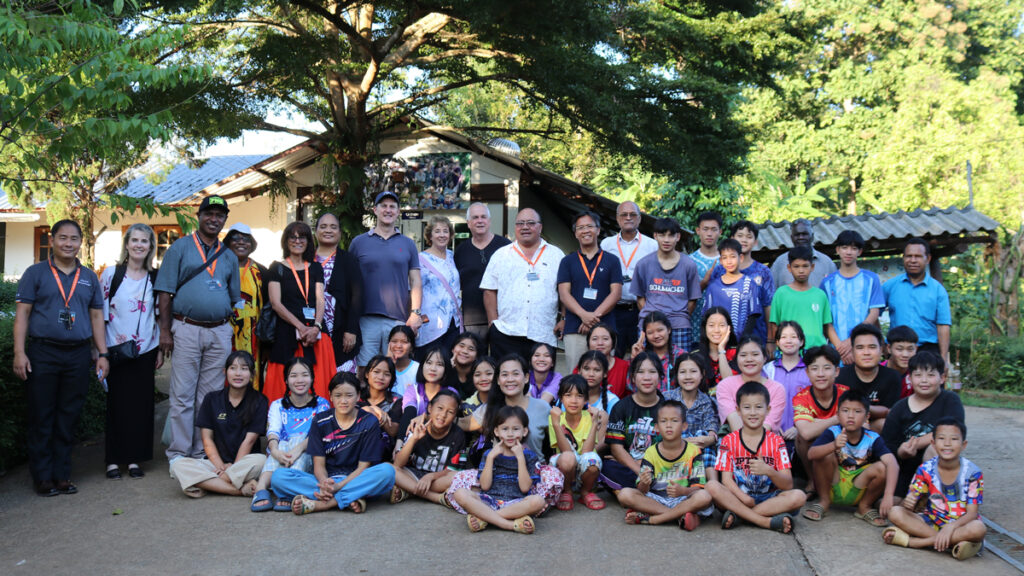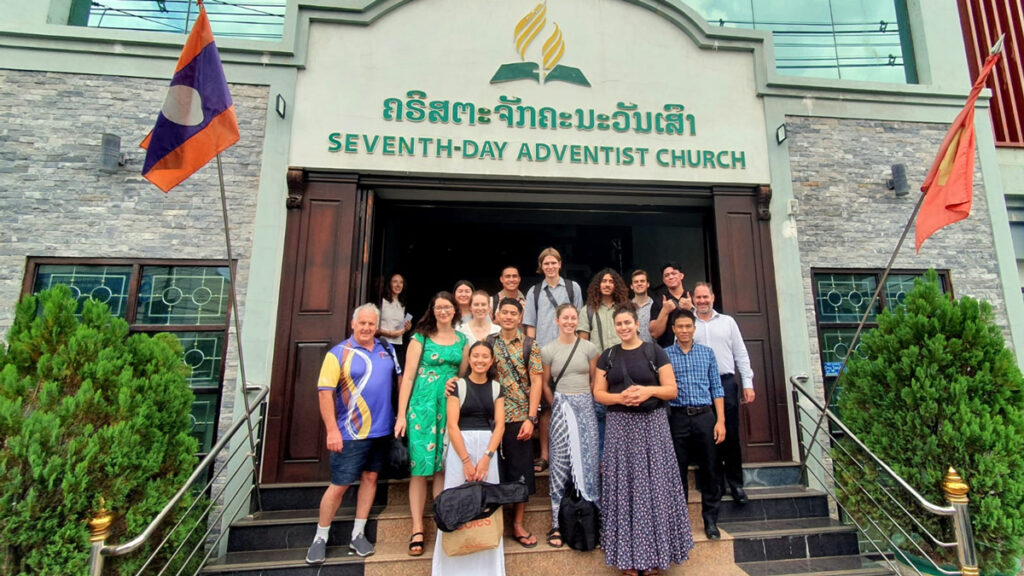Commencing in 2013, the Royal Commission into Institutional Responses to Child Sexual Abuse (Royal Commission) in Australia saw around 8000 allegations raised in private sessions before it concluded in December 2017.
Of the 8000, more than half, 4728, were from survivors within a religious institution. There were 189 Seventh-day Adventist survivors brave enough to share their story of abuse with the Royal Commission. Many other survivors, on their pathway to healing, did not publicly share their story. If we look at our relatively low Seventh-day Adventist membership in Australia, 189 is a disturbingly high number.
The Royal Commission released its final report with 179 recommendations for systemic changes within all Australian child-related organisations: 58 of those have been proposed for religious institutions.
Churches, because of their trusting environments, are seen by predators as a great opportunity to engage and abuse. The sexual abuse of a child is a terrible crime and is one of the greatest of personal violations against the most vulnerable in our community. It is a fundamental breach of the trust that children are entitled to place in adults. Sexual abuse is one of the most traumatic and potentially damaging experiences, and can have lifelong adverse consequences. Tens of thousands of children have been sexually abused in many Australian institutions. We will never know the true number.
The church experience can be one where spiritual people attempt to develop Christ-centred relationships with those who interact with the local Adventist church and its ministries. “However the Royal Commission has shown that the church environment can be a place where child safety can be compromised. In some local churches the power afforded to people in ministry and the misplaced trust of parents when combined with aspects of institutional culture, practices and attitudes can create risks for children and vulnerable people” (Royal Commission 2017 Final Report, p. 6).
The Royal Commission found that ignorance about child sexual abuse in institutions hindered prevention and identification. This lack of knowledge meant that institutions failed to respond appropriately and enabled the abuse to continue. Survivors also said this often “prevented them from disclosing abuse and seeking the treatment and support that would have otherwise been available to them” (see childabuseroyalcommission.gov.au/nature-and-cause).
What many people fail to understand is that the trauma can have a profound, long-lasting and cumulative impact on the victim and survivor, affecting their spirituality and distorting their perception of God. Royal Commission chair Justice Peter McClellan stated that, “the loss of spiritual life for a survivor is common, although not universal. For many survivors this loss compounds the burdens they must carry for the rest of their lives.”
The Royal Commission’s recommendations will provide us with the necessary tools to help equip and empower us as adults to ensure we foster safe environments within our churches and wider entities, so all attendees can spiritually grow and have a loving relationship with God. It is a mistake to assume that sexual abuse in institutions will not continue to occur in the future. But by creating a safe environment we send out a very clear message to potential offenders that our Church is not a place that provides an opportunity to abuse.
Prevention is far better than cure. We pray for guidance and collaboration in creating a safe environment that sends a loud message to everyone, both in and outside of our faith community. Prevention is not just about ticking boxes. Rather it is a commitment and desire from within to care for His precious gifts. [pullquote]
“What we can be certain of is that any institution which does not acknowledge past wrongs and the need for change will lose the confidence of Australians. The community will not accept the legitimacy of any institution which does not give priority to the safety and wellbeing of the children for which it has responsibility,” said Justice McClellan.
Working on the assumption that everyone knows everyone and therefore can be trusted is not an adequate defence in the eyes of our Lord if a child or vulnerable person is abused. Christ has shown us on many occasions through the Bible our responsibility to care for His children and vulnerable people. There have been times where we have failed in what we have been commissioned to do. It is sad that our world has reached this point, but it is also another sign our Lord is soon to return. Our children and vulnerable people, more than ever, need our Church community to surround and support them.
The AdSAFE Team
AdSAFE Ltd (AdSAFE) is a separate incorporated entity set up for the Seventh-day Adventist Church to protect children and vulnerable people from many forms of abuse, serving the South Pacific Division. AdSAFE commenced in January 2017 from an identified need for our Church to be more intentional in our responses and management of child protection matters. Our independence is necessary to make informed decisions and recommendations, without influence from other Church entities and for the best interests of children and vulnerable persons. AdSAFE is continuing the important ministry that our Church commenced 18 years ago—to create a safe environment where our faith community can come and experience the love of God.
Survivor Services
The Survivors Services team provides care and support through specialised case management to survivors and vulnerable adults. Our aim is to create a safe environment where survivors can share their stories and be empowered in seeking justice and healing pathways, through the provision of information on the different options available and to help navigate through the different services within the wider community.
Safeguarding Services Team
Our Safeguarding Services Team is actively working to raise the awareness of our collective responsibility to protect and promote the safety of our children and vulnerable people. Currently supporting approximately 750 churches, 75 schools and a diverse array of services throughout Australia and New Zealand, our small team aims to ensure the best support that complements any existing processes and procedures.
Offender Management and Investigations
The ministry of the Offender Management team is to implement prevention strategies to mitigate the risk of sexual and physical abuse against children and vulnerable people within the context of the local church or its wider activities. The team works closely with pastors and their leadership teams for the effective implementation of safety agreements upon known persons of concern who need to be monitored in our environments. Reporting to regulatory authorities (police and other government agencies) is often required to satisfy jurisdictional legislation. Offender Management also coordinates and manages independent investigations into allegations about child and vulnerable person-related harm within the Adventist Church and its affiliated organisations.
Redress
The Seventh-day Adventist Church recognises and accepts that there are many survivors of child sexual abuse within our churches and institutions, all of whom deserve care and support as they try to rebuild their lives. The Seventh-day Adventist Interim Redress Scheme, which is guided by the recommendations of the Royal Commission, is one way the Church is acknowledging past abuse and providing support to survivors. Through our Redress Scheme, the Church aims to support survivors by listening to their stories, offering an apology, providing access to counselling and providing a tangible acknowledgment of past abuse by way of an ex gratia payment. Over the past 12 months, AdSAFE has received a number of applications for redress and we are hopeful that many more survivors will come forward and seek the care and support that is long overdue to them.
If you would like to make contact with our team for support, advice or to make a report please contact: 1800 220 468 (Australia) or 0800 442 458 (New Zealand). For more information go to: adsafe.org.au.
Ann Wooldridge is AdSAFE general manager.







